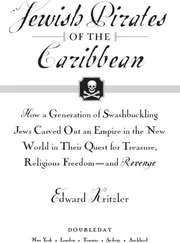Stempenyu drew closer to her, and put his two arms around her waste. Rochalle trembled at his touch. She wished to walk away from him, but she did not stir. She looked hard at Stempenyu, and the tears began to gather in her beautiful eyes.
“What are you crying for?” asked Stempenyu, wiping the tears from her cheeks.
“Oh, Stempenyu, I feel so happy being near you — here beside you. Stempenyu, why am I …? Why am I not …?”
“Why are you not mine, you would ask? You are mine, Rochalle. You are mine.”
“Stempenyu, how can that be? What do you mean by saying I am yours?”
“You are mine, don’t you see, heart of me! You are mine because I am yours always and for ever. To the dark tomb, to the grave itself, I am yours, life of my life.”
“Benjamin said the same and also took an oath. Yet what was the result?”
“What Benjamin?” asked Stempenyu, wondering at her meaning, and hazing in her eyes, as one gazes into the eyes of a little child after it has said something very foolish. “What Benjamin are you talking about?”
“Benjamin — Chaya-Ettel’s cousin. My friend Chaya-Ettel — peace be unto her! — had a cousin whose name was Benjamin. He swore that he was hers for ever and ever. He swore by all that is pure and holy, by his very soul. And in the end? Ah, she had a sad end, poor Chaya-Ettel. She died a good while ago — peace be unto her! I ask her pardon for speaking so lightly of her. But, Benjamin was the very life of her. She would have been satisfied to die at his feet. She told me so herself. I can see her standing as clearly before my eyes as if she were still alive. I imagined often that she and I are sitting in the open window, and I am singing my little songs for her, and she is weeping. She lifts up her head every now and again, and says to me: “Oh, Rochalle, do not believe any of them. Men are all false, every one of them.”
Rochalle went on talking of her dead friend, Chaya-Ettel, the orphan girl, while Stempenyu was kissing her hands, embracing her, and gazing in fond raptures at her beautiful face. Rochalle told him everything about Chaya-Ettel, even to the manner of her death — how she had faded away like a candle, in silence, for love of her darling Benjamin. Though she was dead now some time, Rochalle remembered her quite distinctly. She had thought of her frequently, and dreamt of her often. And, as she was speaking, it seemed to her that Chaya-Ettel was standing on the top of the high monastery wall, dressed in her white grave-clothes. She seemed to Rochalle to be looking directly at her, and winking in the direction of Stempenyu significantly. She also shook her head sadly and doubtfully, as one would say, had see had the power:
“What are you doing here, Rochalle?”
“What good is it, Rochalle, my life — what good is it to you to talk, and think of such things, especially at night? Rather than look at me with your luminous eyes that shine and sparkle like two beautiful diam—”
Stempenyu had no time to finish the word. Rochalle tore herself from his embrace with such force that he was afraid of her.
“God be with you, Rochalle! What is the matter?” He tried to put his arms around her again, but she would not let him. She trembled and sighed.
“Can’t you see? She is — look! She is standing there! She is looking this way — this way!”
“Who is standing? Where? What are you saying, Rochalle? My soul, come to me. Take my hand…”
“Let me be, Stempenyu, let me be. Don’t you see her? There is something white on the wall. Oh, it is she — it is she. It is Chaya-Ettel! Oh, leave me alone — leave me alone! What do you mean by your impudence? What do you mean? I should like to know that! I wish you a good-night — a good-night!”
Hardly were the words out of her mouth, than she rushed away and disappeared in the dark shadows cast by the trees. Stempenyu could only see the two ends of her white shawl as they fluttered behind her like two wings.
So vanishes one’s better angel — so disappears the last trace of a pleasant dream when the morning has come with one’s awakening!
Oh, daughter of Israel, now you have shown your virtues, your purity of heart, your strength in the time of temptation — the whole innocence of your Jewish soul! Here, when the hour of your trial was at hand, you showed your faithfulness and your sincerity!
* * *
When she found herself at home, Rochalle was strongly tempted to shout aloud at the top of her voice, so that everybody might hear, of all that she had done and said and where she had been and with whom. But, she found that the family was not alone. A large number of guests were seated around the hissing samovar . They were deeply absorbed in a discussion about the principles of the business they occupied themselves with, severally. This was what people usually argued about on Saturday nights in Jewish houses, in Russian villages. They generally came together in groups after the day’s rest, and talked and argued about the state of trade — about the fairs of the next day, and about ordinary, everyday matters which they had expelled from their thoughts during the Sabbath, as being unsuited for the holy day of rest.
“I will not take my goods to the fair!” cried a stout Jew, a linen draper. “Let the fair go to the devil. I know quite enough about fairs. They only annoy and aggravate one. They eat the heart out of one’s body. That’s all the good they ever bring to anyone.”
“Why so?” asked Dvossa-Malka, folding her hands across her ample bosom. “I don’t know who you can say that? I wonder, Reb Youdel, why you are angry with fairs? Last week your stall was crowded with customers. I wish that all good men did as much business as you have done. I am sure you got in a lot of money.”
“To you everything is getting in money!” interposed Isaac-Naphtali, without even looking in the direction in which his wife was standing.
“And, I hope that we may never have a worse day than we had last Sunday,” said Moshe-Mendel, lifting his head from his account-book. “Why one should set out to belittle the fair, and to deny that it was a good fair, is more than I can make out.”
“Ah, that is the reason,” replied Youdel. “You never believe anyone else. When you see ten peasants coming into one’s booth together you at once imagine that there is a great deal of business going on. You will not believe that it is no such thing, and that the peasants only rob one right and left. You are filled with envy and malice.”
“Do you know what?” put in a young man who squinted very markedly. “Let us leave talking about the fair. We will be at it all day to-morrow. We will be dead tired of it long before the day is done. Let us talk about something altogether different.”
And, the people at once began to talk about worldly affairs — about the prospect of citrons for the festivals that were coming soon — about the happenings of the last week at the House of Learning, and naturally about war.
Everyone was talking and smoking. The samovar was hissing and bubbling, and the room was filled with smoke and steam. And, on the oven the supper was cooking — the usual Saturday-night Borst , and goodness only knows what else beside.
“Where were you?” asked Dvossa-Malka of her daughter-in-law.
“Only out on the Monastery Road.”
“How is it outside? I hope to God the weather will keep fine until the summer fairs are at an end. But, what is the matter with you, my daughter? Does your head ache that you are so pale? Rochalle, would you like to go and lie down on your bed?”
At these words the company turned round, and seeing Rochalle’s white face they all cried, as with one accord, that she had been made dizzy by the fumes that came from the charcoal of the samovar . She went to her won room to lie down, leaving the people deep in a discussion on the dangers of charcoal fumes — the fumes which were in themselves so trifling — a mere nothing, one might say — a little smoke, and which yet had the strange power of injuring a person that he died of the effects. Someone told a story which had happened at a house of a friend of his grandfather’s — peace be unto him! The whole family had almost been sent out of the world by the fumes of the charcoal.
Читать дальше












